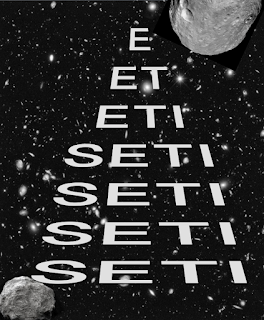May this day be joyous for those who celebrate it as special... and for those who don't. And may the year ahead be our best-yet, though the worst of all that follow.
And now, on to ruminations!
It has been said that: "A top task of the SF author is not to predict the car, but the traffic jam."
Let's update that. What are the consequences of flying cars? And I have long predicted that 2022 or 2023 would be the year they arrive, at least in part.
As a sci fi writer, I peer ahead to note that these luxury flyers that will be largely used (at least at first) by the rich to avoid the frustrating congestion of our streets.
So, will one outcome be better traffic down here, when the rich people leave the roads? Or will the flight of wealthy folks to the sky be just like when, after 9/11, the wealthy abandoned First Class on airline flights in favor of corporate/private jets and charters, resulting is a massive deterioration of life for the rest of us air travelers. Because till then, the rich and influential still had to use the same airports and planes, and their complaints were heeded. So what happens when they abandon our streets and highways, leaving us to fester while they demand more tax cuts?
So, will we get angry, seeing these demigods zipping above us? Will this be another tech advance that swiftly percolates down to the rest of us, as I portray in my short story “Transition Generation”? Or might flying cars carrying sky lords be the final insult leading to revolution?Another question. Might flying cars, be used for terrorism?
Sure, (1) they are tiny. (2) AI controlled. That’s problematic, and in Existence I posed swarm terror attacks using drones and flying cars. Still, rule-systems can be adjusted, and (3) there will be banned areas with plenty of laser defenses. But yes. Tradeoffs and dangers.
One prototype under development: the flying AirCar, invented in Slovakia, which can transform into a sports car in minutes. This video presents other experimental flying cars including the Aero Mobil, the Klein Vision Air Car, the AirBus PopUp, the Terrafugia and the PAL-V. Some modern updates to those envisioned in Sci Fi movies such as The Fifth Element, Blade Runner, Total Recall, The Jetsons, Back to the Future... and so many others.
By coincidence, I just read (and blurbed) the latest book by J Storrs Hall - Where Is My Flying Car? The book ought to have gone into all that.
Oh, want irony? For 50 years Los Angeles required all tall buildings to have flat roofs for heliports than then were seldom used. Now, after the law was rescinded, may come the golden era of rooftop taxi service. Again, for elites.
Followup: Sorry, I thought it was obvious that (a) initial uses will be between licensed landing pads and (b) automatic control will be almost absolutely required. And yes, within those limits I reiterat: I expect it in the next two years. At which point the whine will shift from "Where's the flying car?" to "Where's my flying car?"
== Recommended... ==
One of the greatest directors of all time, whose work I laud in VIVID TOMORROWS: Science Fiction and Hollywood, is Nicholas Meyer, who saved Star Trek, among many things. He also is a noted innovator in the wide and popular Sherlock Holmes canon, having initiated the latest era of fun creativity with The Seven Percent Solution. Now comes his latest The Return of the Pharaoh: From the Reminiscences of John H. Watson, M.D. Such brain food.
On a lighter note... Marie Vibbert's lively and rollicking Galactic Hell Cats is way fun, as is the trailer.
Which reminds me of a micro-rant I have been meaning to issue: Mars Attacks is best watched with the music on... but with the insipid/unfunny dialogue turned off. Better, switch to a version that's dubbed in a language you don't know - no subtitles! All the unintentionally stupid things vanish and the intentionally stupid ones amplify! You'll imagine hilarious lines! Trust me on this. Try it.
And for more sci fi hilarity, try my own comedy: The Ancient Ones.
One of you reminded me that I have TWO works of comedic SF. Now, there are many styles and varieties of humor! In my recent novel The Ancient Ones, I tried for the level of pun-laced satire and irony-amid-plausibility Terry Pratchett achieved with such grace and that I could only aspire-to... with - sure - a few moments of pure lampoon... while mixing genres... Star Trek Pastiche with vampire-zombie-werewolves! You can sample the first 3 chapters free at my site and decide if Brin is merely crazy or Crazy!
But there's another attempt at comedic SF that you can also try for free. Gorilla My Dreams - a broad, lampoony and immature take on my own Uplift Universe, plus several guest cosmoses. Something for the weekend. Don't drink beverages while reading too close to the screen...
Though indeed, many have enjoyed the lighter side of Kiln People and The Practice Effect.
== And furthermore ==
Tales from the Bridge: All Things Sci-Fi hosted A Conversation with David Brin.
Beyond Dune and Foundation: a list of Golden Age SF classics that should be adapted to the screen, including Mockingbird, The Dispossessed, and The Demolished Man.
While we started with flying cars, science fiction has also offered more dire visions of possible future: a list of 20 greatest apocalyptic novels includes classics such as Earth Abides, Parable of the Sower, On the Beach, A Canticle for Leibowitz, Alas, Babylon, as well as The Postman.








